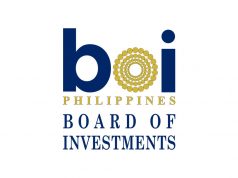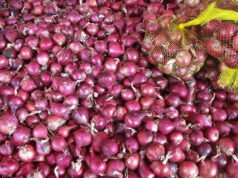By Carmelito Q. Francisco,
Correspondent
DAVAO CITY — The Department of Trade and Industry in the Davao Region is focusing on developing cacao, coffee and coconut next year via the provision of about P34 million in shared-service facilities.
The agency’s regional director, Maria Belenda Q. Ambi, said last week that these facilities will focus on improving the marketability of the crops.
“(The projects) are still subject to review,” Ms. Ambi said, noting that 2018 funding is about the same as the levels in 2015, the last time its budget was raised by the national office.
This year, the agency was able to fund P1.22 million in shared-service facilities, which were focused on dairy production in the city and virgin coconut oil in Compostela Valley.
The provision of shared-service facilities hopes to enhance the output of micro, small and medium enterprises and to make their products more competitive. A facility is provided to a group of producers to maximize its use.
In the cacao industry, the city government is hoping to build on the gains made by Davao products on the international market. Davao City Mayor Sara Z. Duterte-Carpio has set aside P2 million to fund the cacao production program of the city government.
“We have exponentially grown our economy since the discovery of our potential to produce cacao and chocolate products. As we can supply at least 80% of our country’s total cacao demand, Davao Region is now moving towards becoming the Chocolate Capital of the Philippines,” said Ms. Duterte as the city government opened a cacao outlet at its Pasalubong Center.
According to the Philippine Statistics Authority, the region produced 5,073.83 metric tons last year out of the 6,262.77 metric-ton national total.
The strategy of the industry, said Valente D. Turtur, Cacao Industry Development Association of Mindanao, Inc. executive director, is to improve production with buyers seeking more volume.
To do this, cacao producers — about 20,000 farmers in the region — need to plant high-yielding quality seedlings, he added.
Coffee industry stakeholders have urged producers to focus on producing the so-called specialty coffee as well as enhance the quality of the beans.
In late October, Pacita U. Juan, president of the Philippine Coffee Board, said that the government must help provide facilities to enhance the quality of the crop.
Ms. Juan said the easiest way to do this is to allow coffee producers to tap the research and development facilities of state universities.
The coconut industry, on the other hand, has also been pushing for the establishment of facilities that will help coconut growers in the development of high-value products.
Migdonio C. Clamor, Jr., Davao Region Coconut Industry Cluster executive director, earlier said that aside from rehabilitating coconut farms, there is also a need to help farmers add value to their products and not rely on copra.
Mr. Clamor said that some producers have abandoned copra production by selling whole nuts, saving on labor costs. A few of them, on the other hand, have ventured into producing coconut textiles, sugar both from sap and shell and other similar products.
He said a community in Pantukan, Compostela Valley has started producing these items in small quantities. “They will still need assistance so they could bring their production to commercial quantities,” he said.



